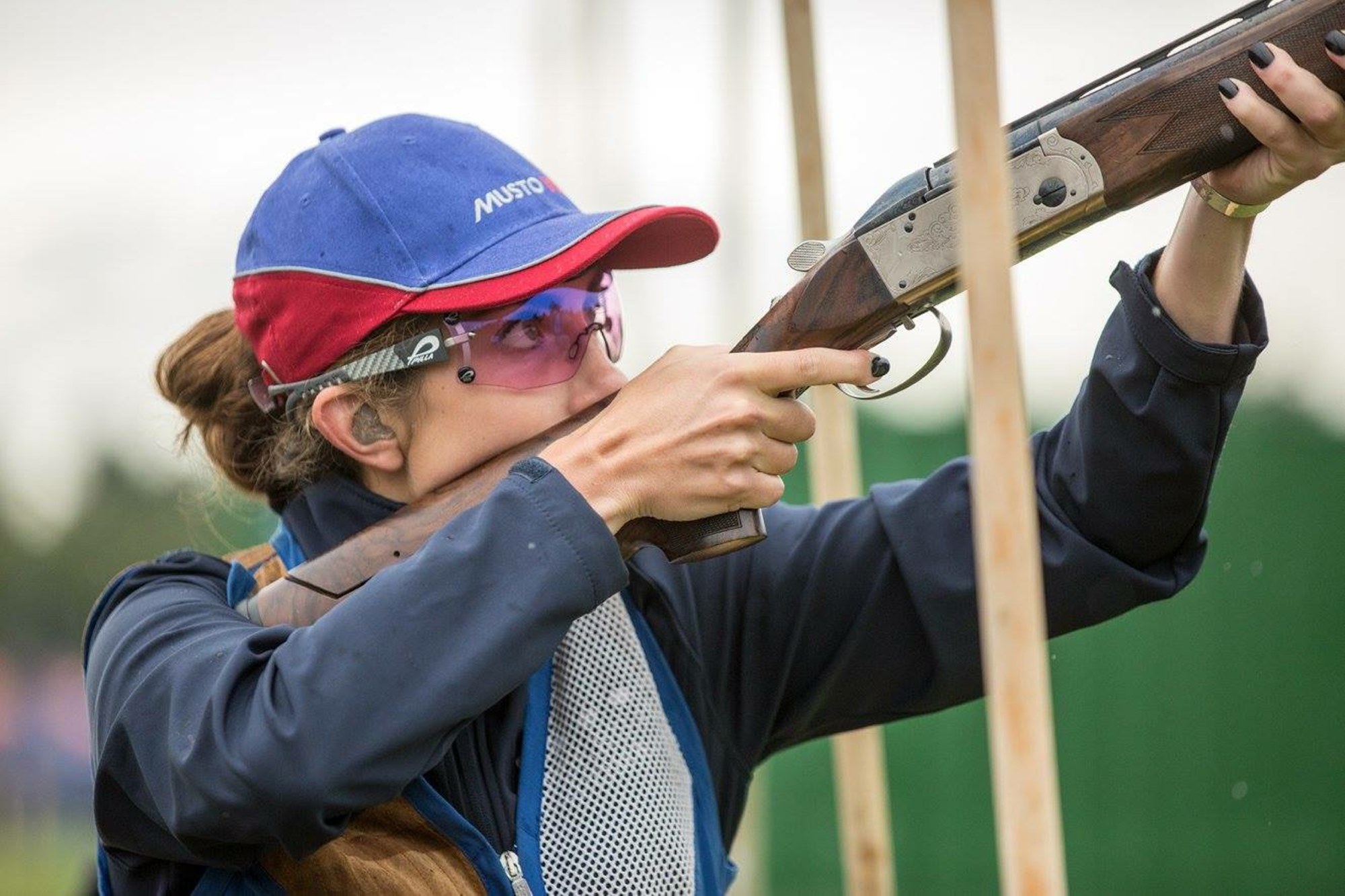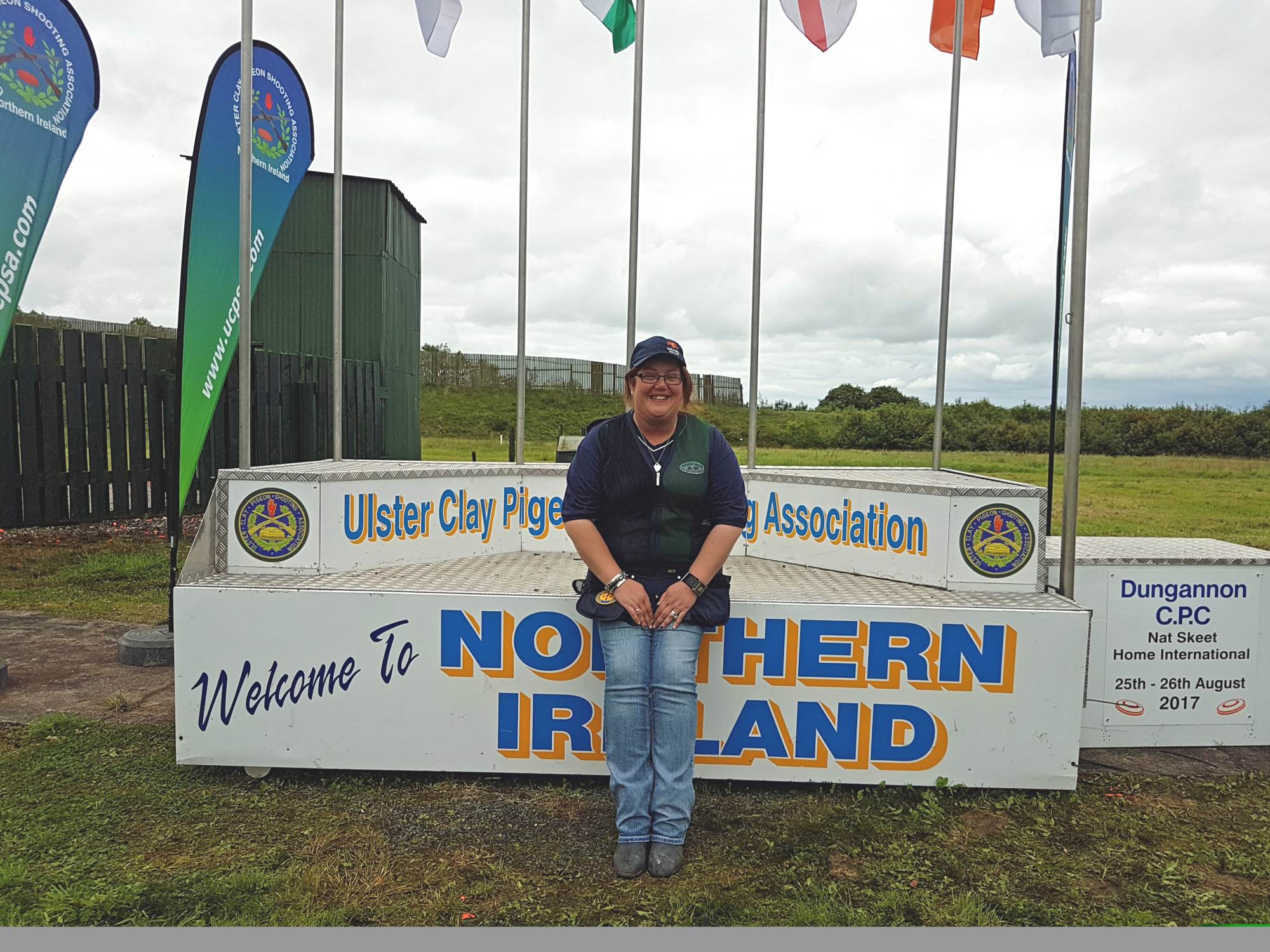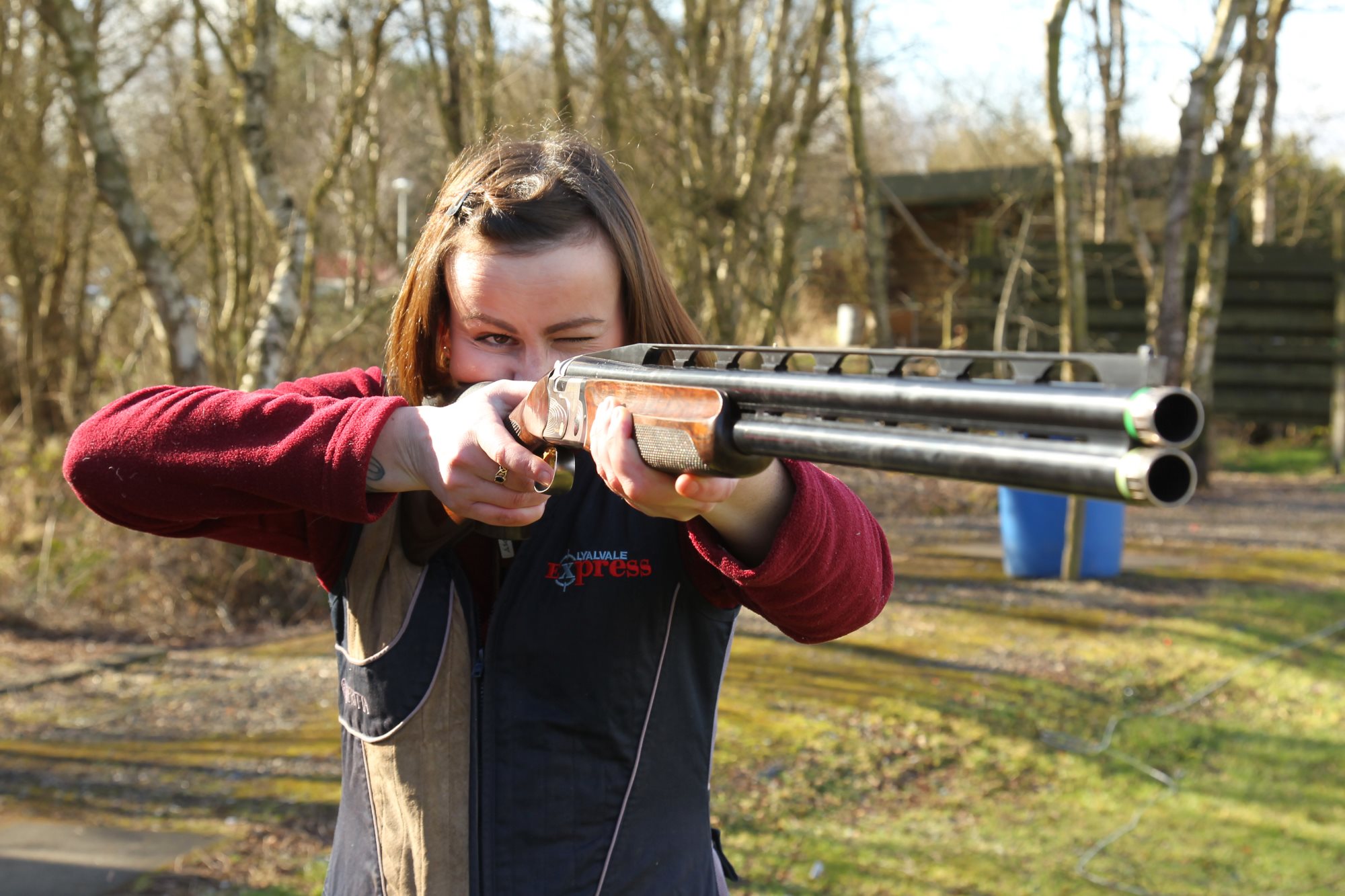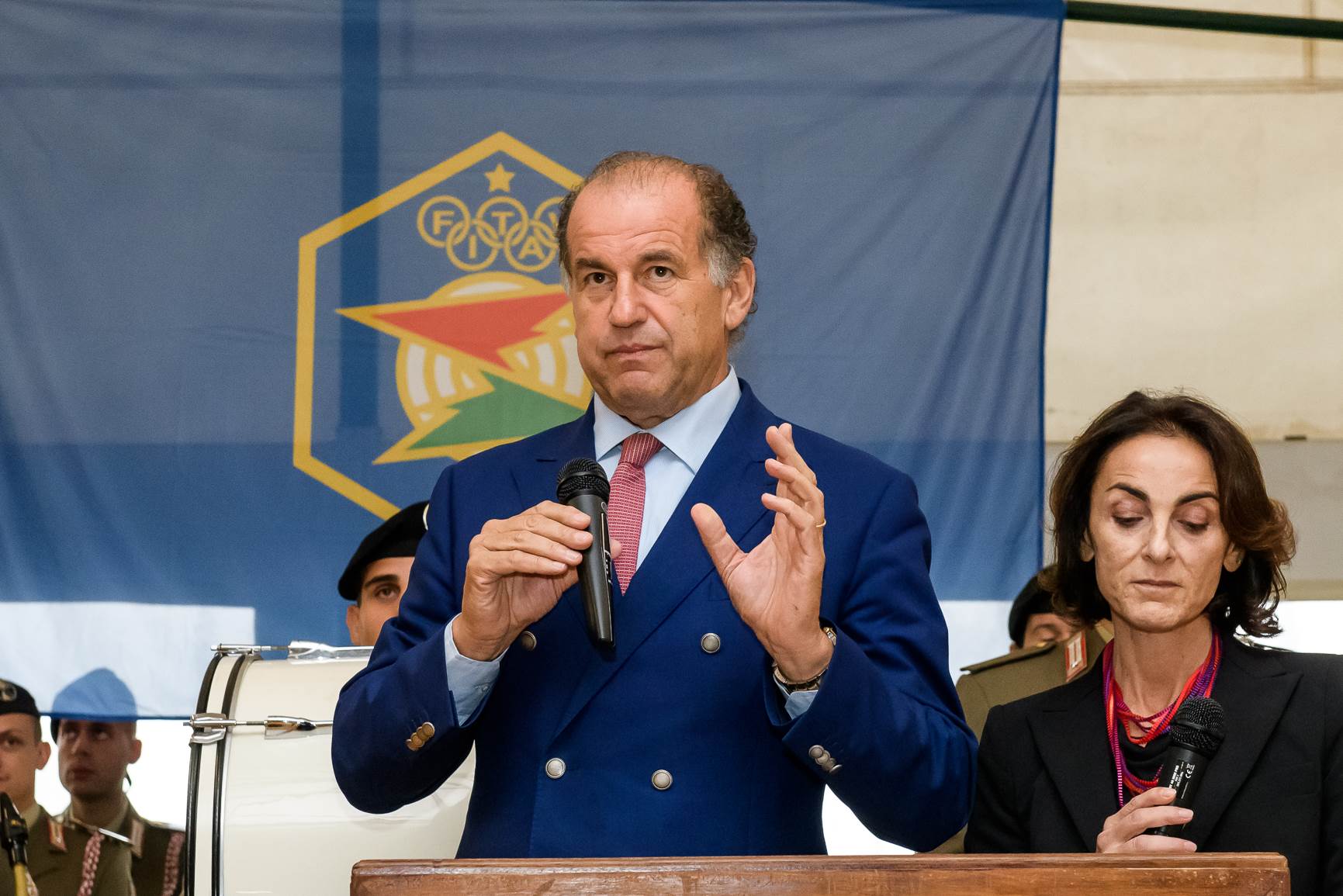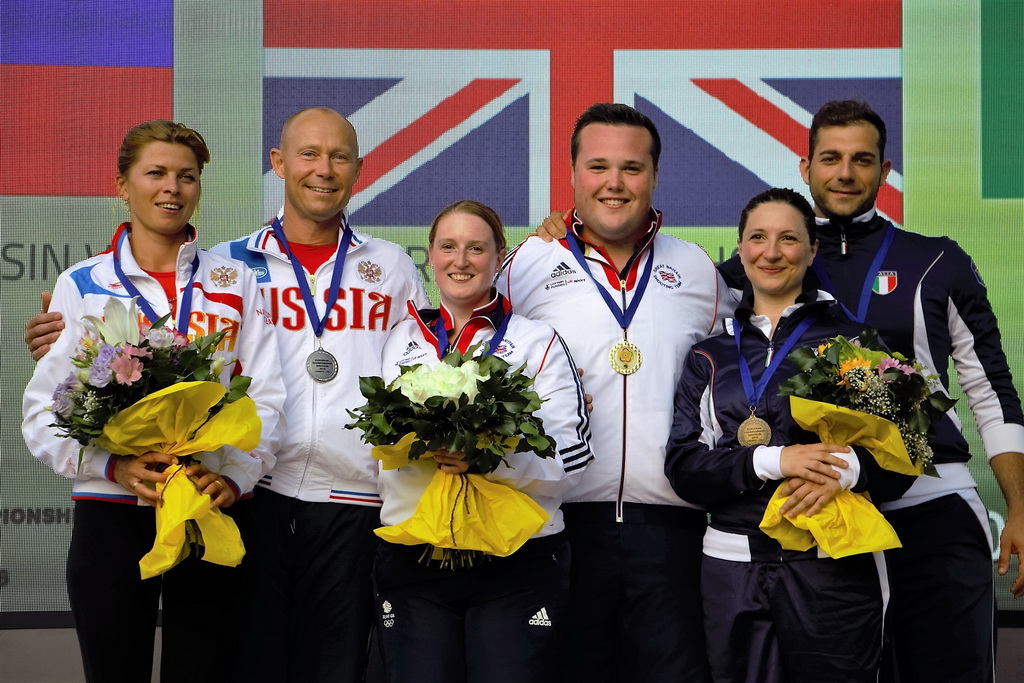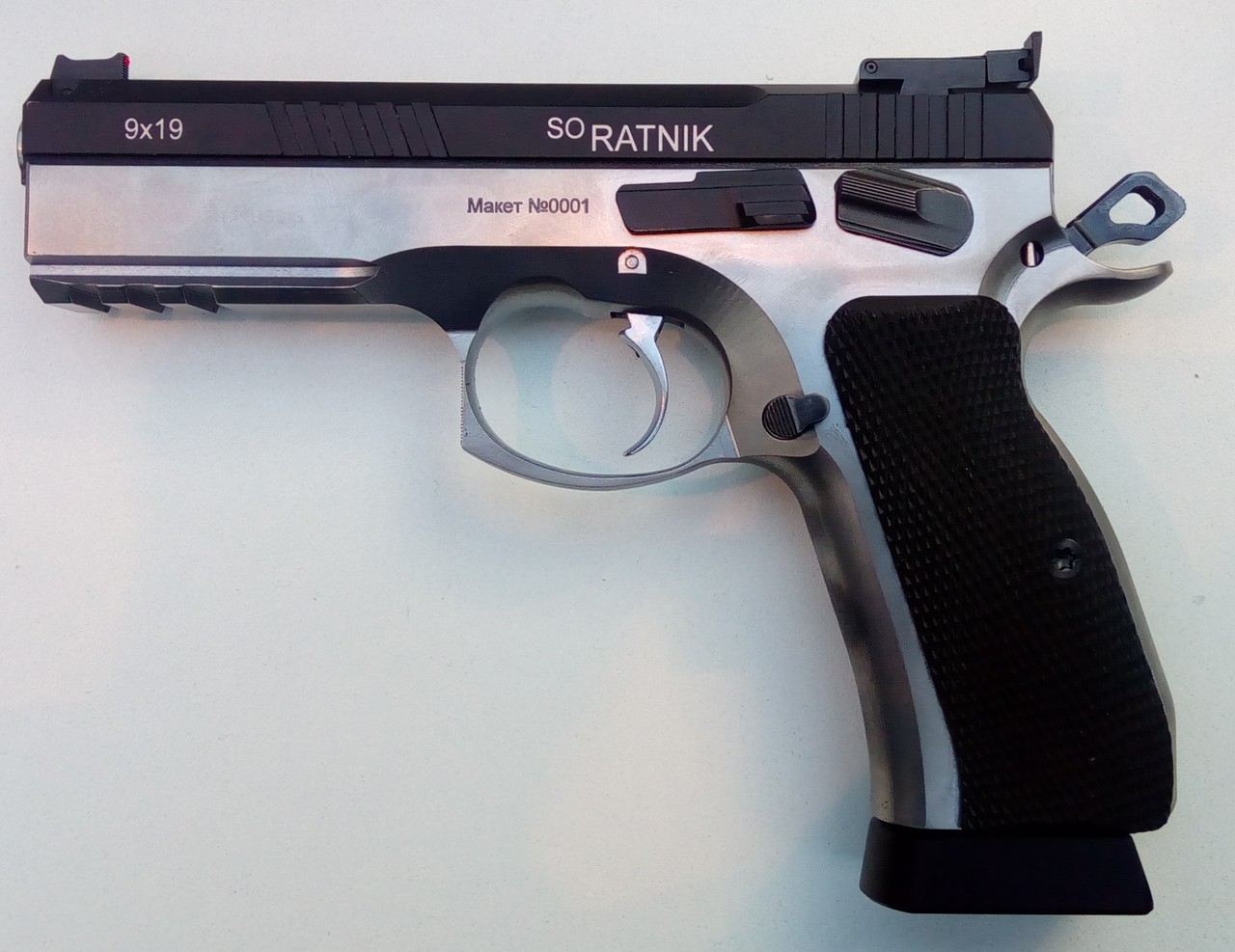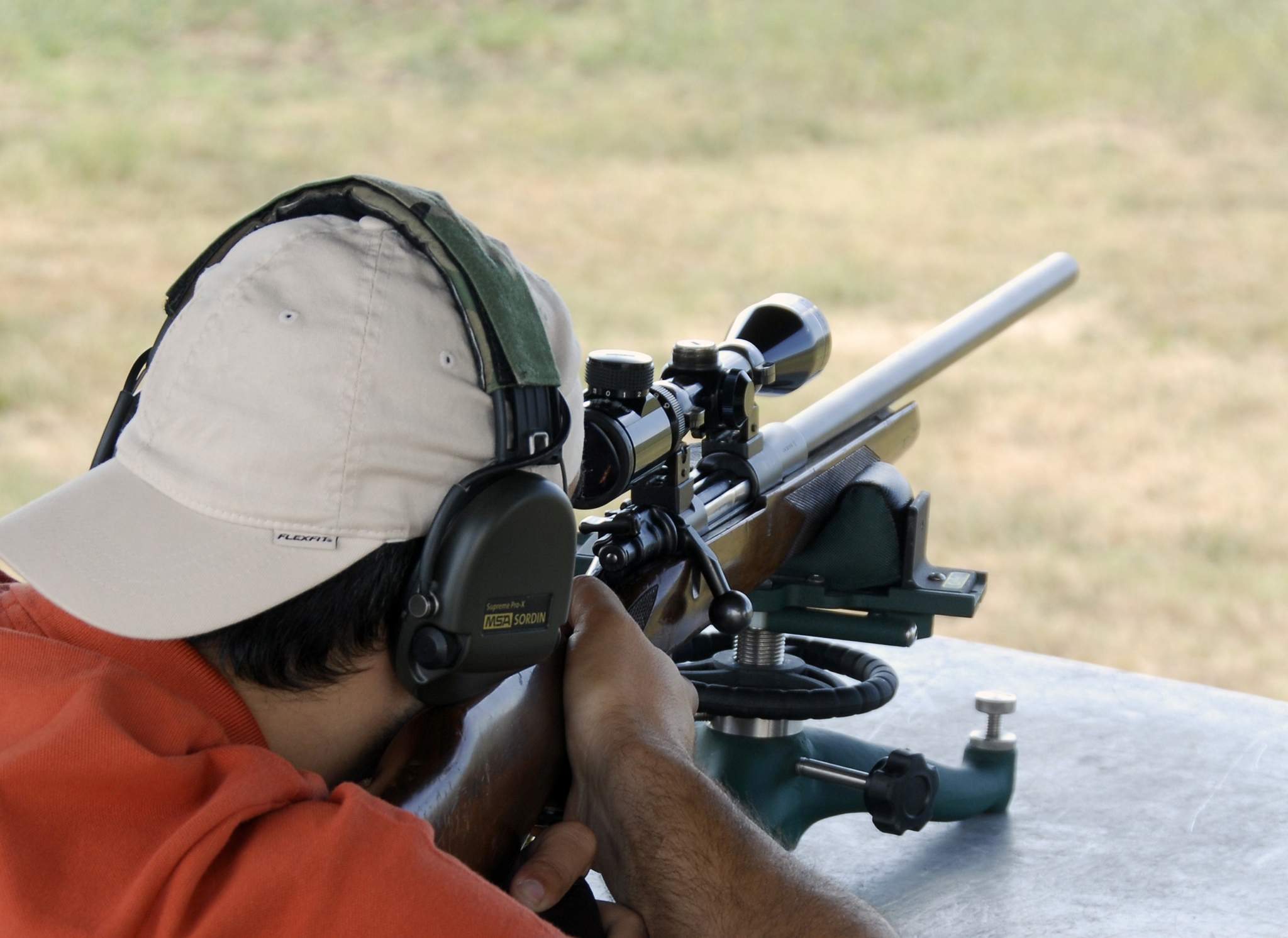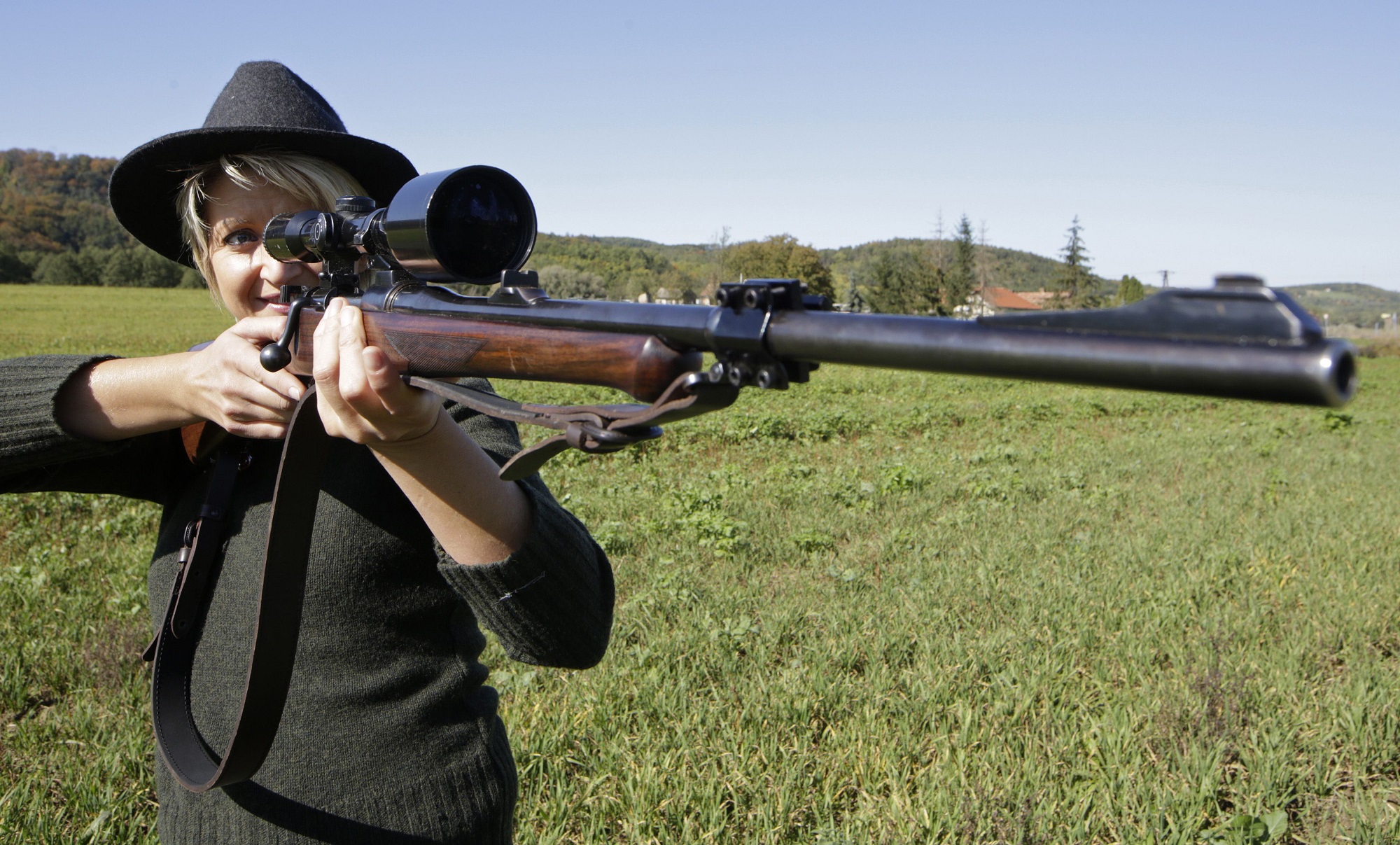After a stellar year culminating in Paris 2024, the International shooting sport federation (ISSF) World Cup Final was an opportunity for confirmation and even some revenge from July's Olympics. 124 athletes from 34 countries competed at the Dr. Karni Singh shooting range in New Delhi, India. The final medal table declared China's success with 5 golds and 3 bronzes, ahead of Italy with 1 gold, 3 silvers and 1 bronze, and Germany with 1 gold and 2 silvers.
At the end-of-season classic, a maximum of 12 athletes took part in each of the 12 events on the programme, i.e. the top athletes of each world ranking and two wild cards chosen by the local organising committee. So many Indian shooters competed, winning 2 silver and 2 bronze medals.
Also present were the newly-nominated shooter of the year, the Chinese Olympic champions of women's 25m Air Pistol Yang Jiin and men's 50m Rifle 3-Positions Liu Yukun. Also present was the star of social media during the Olympics, Turkey's Yusuf Dikec, who finished 11th in P10.
Confirmation and revenge
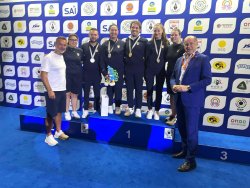
China's other Olympic champions Lihao Sheng and Yu Xie were again victorious in the men's 10m Air Rifle and 10m Air Pistol, respectively, while Yuting Huang and Camille Jedrzejewski, Olympic silver medallists in the women's 10m Air Rifle and 10m Air Pistol, this time took the top step of the podium. Huang set a new world record in the 10m Air Rifle final with 254.5 points – quite a feat considering she is still a junior athlete.
Germany's Anna Janssen ended the qualification in first place, also with a world record, at 636.9, but then failed to go beyond seventh place in the final. Second was India's Sonam Uttam Maskar (252.9) and third was France's Oceanne Muller (231.1). Frenchwoman Jedrzejewski led the 10m Air Pistol final all the way, beating Chinese Taipei's Heng Yu Liu (237.4) with 240.8, and Egypt's Hala El-Gohari (215.7). Both of these athletes achieved their best results so far in the World Cup.
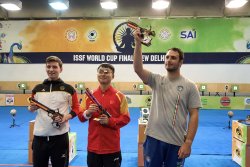
As anticipated, Sheng overtook Hungary's Istvan Peni in a comeback by just a tenth of a point, 251.4 versus 251.3, with Czech Jiri Privratsky third. Italy's Danilo Dennis Sollazzo, winner of the qualification with an extraordinary national record of 633.8, then went no further than sixth place. However, Peni made up for it in the 3-Position, with a flawless final always in the lead, overtaking with 465.3 again Privratsky (464.2) and India's Akhil Sheoran (452.6), who beat Olympic champion and ISSF athlete of the year 2024 Liu Yukun by a few tenths. Austria's Alexander Schmirl, who led in the qualification, placed sixth in the final. In 10m Air Pistol, China's Xie defeated Germany's Walter Robin, who gave him a hard time in the final, which nevertheless ended 244.6 against 243.3. Third and fourth were the Italian pair formed by Federico Nilo Maldini (221.7) and Paolo Monna (196.6), already silver and bronze medallists in Paris.
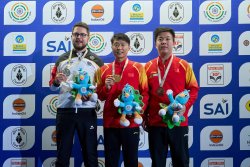
In the Rapid Fire Pistol final, Olympic champion Li Yuehong was not long in coming. Also in the final were his teammate Xinjie Wang and the German trio of Florian Peter, Oliver Geis and Christian Reitz, along with Italian Massimo Spinella. The latter went out immediately, while Li successfully hit all the first five rounds. Reitz finished fifth and Geis fourth, Wang ruined any chance of winning silver, missing seven of his last 10 targets and taking bronze. Peter tried to make a run for it, but Li only had to manage the lead. In the women's 25m Pistol, Olympic champion and ISSF athlete of the year Yang was eliminated in seventh place, after Hungary's Veronika Major, eighth, but first in qualifying with 593.
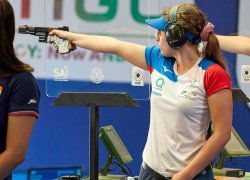
Then came a three-way tie-break for sixth place between Germany's Doreen Vennekamp and Josefin Eder with India's Simranpreet Kaur Brar having to leave the final with sixth place. Then it was Vennekamp's turn, fifth, before another three-way tie-break became necessary: France's Jedrzejewski scored four out of five shots, Sixuan Feng scored all her shots, while India's Rhythm Sangwan scored only one and settled for fourth place. The French athlete defeated China's Feng in the ensuing tie-breaker for silver, while Eder held a one-point lead for the second time: Jedrzejewski then missed her last shot, not so Eder who, keeping the point lead (36 to 35), achieved an important victory for her career.
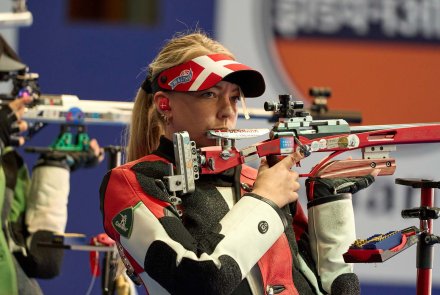
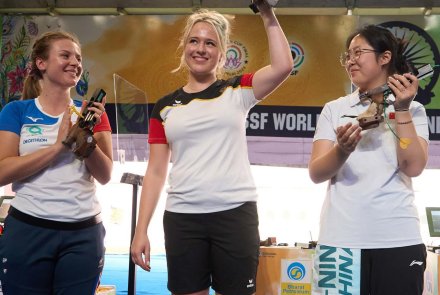
The "battle" in the women's 50m Rifle 3-Positions final was all Scandinavian: Denmark's Rikke Maeng Ibsen got the better of her Norwegian rival Jeanette Hegg Duestad and won the gold medal. For Ibsen, this was her second World Cup gold in this speciality, a step up from the bronze medal she won in the 2022 final. Switzerland's Olympic champion Chiara Leone finished 11th with 584. Fourth in qualifying, Ibsen distinguished herself in the final. The first eliminated athletes were Germany's Janssen. Eighth, and China's Xia Siyu, seventh, followed by Mongolia's Yesugen Oyunbat, sixth. A 9.2 then condemned former leader Qiongyue Zhang, bronze medallist in Paris, who was eliminated in fifth place, followed by Germany's Jolyn Beer in fourth place. Jiayu Han reached the third step of the podium as Ibsen was completing her comeback over Duestad, who was penalised by an 8.3 in the third-to-last shot, while Ibsen's 10.8 in the penultimate shot allowed her to win, 466.2 against 465.6.
Clay pigeon shooting speaks more and more Italian
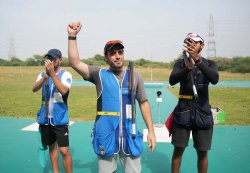
China is always at the top in target shooting and Italy in clay pigeon shooting, particularly in Skeet. Tammaro Cassandro, fourth in Paris, subverted the competitive hierarchies "at home" by winning gold over the more titled – gold in Rio in the individual event and in Paris in the Mixed event – Gabriele Rossetti. The two Italians got rid of the competition (India's Mairaj Ahmad Khan sixth, Denmark's Jesper Hansen fifth, Qatar's Rashind Saleh Al-Athba fourth and India's Aanant Jeet Singh Naruka, bronze medallist) right from the start, with Rossetti scoring full points until the 31st clay pigeon and leading solo until 53rd. On the 54th shot, the Tuscan met a clay pigeon that had to be repeated, but the judge took a different view and the zero brought the confrontation with Cassandro back to a draw. The latter got full score at the last station 5, while Rossetti, unnerved, missed the last clay target: Cassandro gold with 57/60 and Rossetti silver with 56/60. The American Conner Lynn Prince, silver medallist in Paris behind compatriot Vincent Hancock, finished eighth and the bronze medallist from Paris, Chinese Taipei's Yuan Lee, tenth.
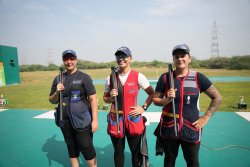
The Americans made up for it in the women's event with Samantha Simonton defeating 56-54 Italy's Diana Bacosi, gold in Rio and silver in Tokyo, gold in Mixed in Paris. First in the qualification with the exceptional score of 124/125 in the five competition series and +8 in the tie-breaker against the American Simonton, she faced the final with the firm intention of winning the only gold missing from her palmares. Her run to the podium threatened to come to a halt in fifth place due to four mistakes made in the second rotation, but she was able to continue until the duel for gold with Simonton, who had not gone to Paris. Unfortunately, the American's advantage did not allow the Italian to make a comeback. Third was France's Lucie Anastassiou, fourth the American Dania Jo Vizzi, fifth the other Italian Martina Maruzzo and sixth the Indian Ganemat Sekhon.
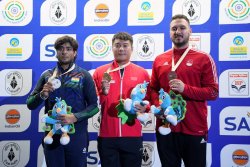
The latest gold for China came in the men's Trap. After winning the silver medal in Paris, Ying Qi took advantage of the absence of British Olympic gold medallist Nathan Hales to claim his second ISSF World Cup gold. The Chinese athlete hit all the initial 35 clay targets of the final, building up a big lead over the second, which for a while was Spain's Alberto Fernandez, who eventually finished fourth. India's Vivaan Kapoor held off Qi, but had to settle for silver 44-47. Turkey's N. Tolga Tuncer showed great skill, winning his first individual World Cup medal, a bronze. Olympic finalist James Willett from Australia finished fifth, after dominating the qualification with 122, ahead of Czech David Kostelecky, sixth.
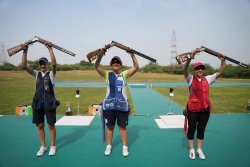
Italy again – at least geographically – for women's Trap gold. San Marino athlete Alessandra Perilli claimed her second World Cup final nine years after winning in Nicosia in 2015, winning overwhelmingly 45 to 39 over Italy's Erica Sessa. Already two clay pigeons behind her opponent, the 25-year-old Italian was overwhelmed by the excitement of hitting the podium in her first World Cup final and lost focus, letting four of the first five clay pigeons of the final match for gold slip away.
The early leader in the women's Trap final was Safiye Temizdemir of Turkey, then third ahead of Spain's Fatima Galvez, one of the Olympic finalists, in fourth position. The reigning Olympic champion, Adriana Ruano from Guatemala, had a qualification to be forgotten by missing the six-way final. The vice champion of Paris, the other Italian Silvana Maria Stanco, despite winning the qualification in New Delhi with 120/125 finished sixth. Fifth was Ray Bassil of Lebanon.
The ISSF international competition season comes to an end with this World Cup Final. The first event of the new season and the new four-year Olympic period is set for 1-11 April 2025 in Buenos Aires, Argentina, with the first round of the World Cup.





